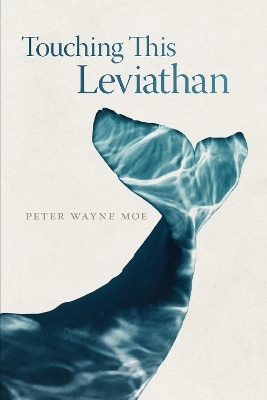
Touching This Leviathan
Seiten
2021
Oregon State University (Verlag)
978-0-87071-307-1 (ISBN)
Oregon State University (Verlag)
978-0-87071-307-1 (ISBN)
Asks how we might come to know the unknowable - in this case, whales, these animals so large yet so elusive, revealing just a sliver of back, a glimpse of a fluke, or, if you're lucky, a split-second breach before diving away.
Touching This Leviathan asks how we might come to know the unknowable--in this case, whales, these animals so large yet so elusive, revealing just a sliver of back, a glimpse of a fluke, or, if you're lucky, a split-second breach before diving away. It's a pressing question, given how frequently whales are in the news: Japan just withdrew from the International Whaling Commission's ban on whaling; the Makah Tribe seeks to resume hunts; in 2019 there was a rash of dead gray whales along the west coast (some 200 of them); in 2018, an orca attracted international attention when she pushed her dead calf through the water 17 days before finally letting go. But other whale books sit in disciplinary silos: the history books, the science books, the literary books. There's no conversation between them, which is where Touching This Leviathan intervenes. Drawing upon biology, theology, local history, literary studies, environmental studies, and composition theory, Touching This Leviathan is necessarily interdisciplinary: literary nonfiction that gestures toward science and literary criticism as it invites readers into the belly of the whale.
Touching This Leviathan asks how we might come to know the unknowable--in this case, whales, these animals so large yet so elusive, revealing just a sliver of back, a glimpse of a fluke, or, if you're lucky, a split-second breach before diving away. It's a pressing question, given how frequently whales are in the news: Japan just withdrew from the International Whaling Commission's ban on whaling; the Makah Tribe seeks to resume hunts; in 2019 there was a rash of dead gray whales along the west coast (some 200 of them); in 2018, an orca attracted international attention when she pushed her dead calf through the water 17 days before finally letting go. But other whale books sit in disciplinary silos: the history books, the science books, the literary books. There's no conversation between them, which is where Touching This Leviathan intervenes. Drawing upon biology, theology, local history, literary studies, environmental studies, and composition theory, Touching This Leviathan is necessarily interdisciplinary: literary nonfiction that gestures toward science and literary criticism as it invites readers into the belly of the whale.
Peter Wayne Moe's Touching This Leviathan asks how someone might come to know the unknowable-in this case, whales. This is his first book, though he has also published over twenty essays on the teaching of writing. Moe is an assistant professor of English and oversees the writing program at Seattle Pacific University, where, in the summer of 2020, he led a project working alongside 130 volunteers to hang a whale skeleton in the school's science building.
| Erscheinungsdatum | 12.04.2021 |
|---|---|
| Zusatzinfo | Black & white photograph |
| Verlagsort | Corvallis, OR |
| Sprache | englisch |
| Maße | 140 x 216 mm |
| Gewicht | 230 g |
| Themenwelt | Sachbuch/Ratgeber ► Natur / Technik ► Naturführer |
| Schulbuch / Wörterbuch ► Lexikon / Chroniken | |
| Geisteswissenschaften ► Sprach- / Literaturwissenschaft ► Anglistik / Amerikanistik | |
| Geisteswissenschaften ► Sprach- / Literaturwissenschaft ► Literaturwissenschaft | |
| Naturwissenschaften ► Biologie ► Zoologie | |
| Naturwissenschaften ► Geowissenschaften ► Hydrologie / Ozeanografie | |
| ISBN-10 | 0-87071-307-8 / 0870713078 |
| ISBN-13 | 978-0-87071-307-1 / 9780870713071 |
| Zustand | Neuware |
| Haben Sie eine Frage zum Produkt? |
Mehr entdecken
aus dem Bereich
aus dem Bereich
Buch | Hardcover (2019)
Quelle & Meyer (Verlag)
CHF 55,90


